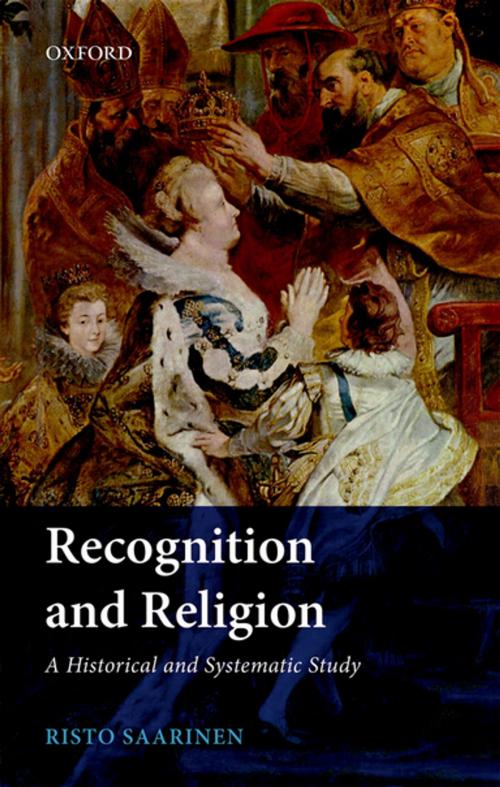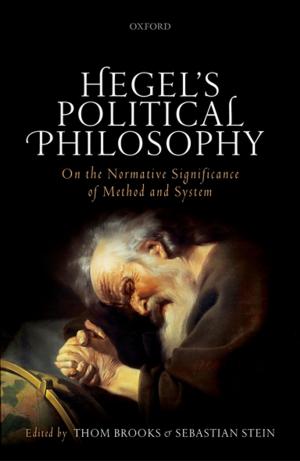Recognition and Religion
A Historical and Systematic Study
Nonfiction, Religion & Spirituality, Theology, Christianity| Author: | Risto Saarinen | ISBN: | 9780192509796 |
| Publisher: | OUP Oxford | Publication: | October 20, 2016 |
| Imprint: | OUP Oxford | Language: | English |
| Author: | Risto Saarinen |
| ISBN: | 9780192509796 |
| Publisher: | OUP Oxford |
| Publication: | October 20, 2016 |
| Imprint: | OUP Oxford |
| Language: | English |
During the last twenty years, the theory of recognition has become an established field of philosophy and social studies. Variants of this theory often promise applications to the burning political issues of current society, such as the challenges of multiculturalism, group identity, and conflicts between ideologies and religions. The seminal works of this trend employ Hegelian ideas to tackle the problem of modernity. Although some recent studies also investigate the pre-Hegelian roots of recognition, this concept is normally considered to be a product of the secular modernity of the nineteenth and twentieth centuries. Recognition and Religion: A Historical and Systematic Study challenges this assumption and claims that important intellectual roots of the concept and conceptions of recognition are found in much earlier religious sources. Risto Saarinen outlines the first intellectual history of religious recognition, stretching from the New Testament to present day. He connects the history of religion with philosophical approaches, arguing that philosophers owe a considerable historical and conceptual debt to the religious processes of recognition. At the same time, religious recognition has a distinctive profile that differs from philosophy in some important respects. Saarinen undertakes a systematic elaboration of the insights provided by the tradition of religious recognition. He proposes that theology and philosophy can make creative use of the long history of religious recognition.
During the last twenty years, the theory of recognition has become an established field of philosophy and social studies. Variants of this theory often promise applications to the burning political issues of current society, such as the challenges of multiculturalism, group identity, and conflicts between ideologies and religions. The seminal works of this trend employ Hegelian ideas to tackle the problem of modernity. Although some recent studies also investigate the pre-Hegelian roots of recognition, this concept is normally considered to be a product of the secular modernity of the nineteenth and twentieth centuries. Recognition and Religion: A Historical and Systematic Study challenges this assumption and claims that important intellectual roots of the concept and conceptions of recognition are found in much earlier religious sources. Risto Saarinen outlines the first intellectual history of religious recognition, stretching from the New Testament to present day. He connects the history of religion with philosophical approaches, arguing that philosophers owe a considerable historical and conceptual debt to the religious processes of recognition. At the same time, religious recognition has a distinctive profile that differs from philosophy in some important respects. Saarinen undertakes a systematic elaboration of the insights provided by the tradition of religious recognition. He proposes that theology and philosophy can make creative use of the long history of religious recognition.















